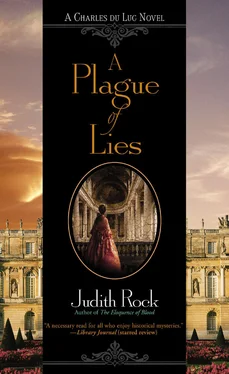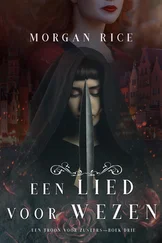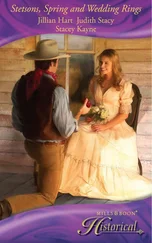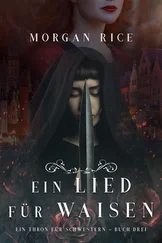Judith Rock - Plague of Lies
Здесь есть возможность читать онлайн «Judith Rock - Plague of Lies» весь текст электронной книги совершенно бесплатно (целиком полную версию без сокращений). В некоторых случаях можно слушать аудио, скачать через торрент в формате fb2 и присутствует краткое содержание. Жанр: Исторический детектив, на английском языке. Описание произведения, (предисловие) а так же отзывы посетителей доступны на портале библиотеки ЛибКат.
- Название:Plague of Lies
- Автор:
- Жанр:
- Год:неизвестен
- ISBN:нет данных
- Рейтинг книги:3 / 5. Голосов: 1
-
Избранное:Добавить в избранное
- Отзывы:
-
Ваша оценка:
- 60
- 1
- 2
- 3
- 4
- 5
Plague of Lies: краткое содержание, описание и аннотация
Предлагаем к чтению аннотацию, описание, краткое содержание или предисловие (зависит от того, что написал сам автор книги «Plague of Lies»). Если вы не нашли необходимую информацию о книге — напишите в комментариях, мы постараемся отыскать её.
Plague of Lies — читать онлайн бесплатно полную книгу (весь текст) целиком
Ниже представлен текст книги, разбитый по страницам. Система сохранения места последней прочитанной страницы, позволяет с удобством читать онлайн бесплатно книгу «Plague of Lies», без необходимости каждый раз заново искать на чём Вы остановились. Поставьте закладку, и сможете в любой момент перейти на страницу, на которой закончили чтение.
Интервал:
Закладка:
Charles considered the rhetoric master with some surprise, wondering at this irritable, moralistic fault finding. He’d never heard Jouvancy in this mood before.
“And so you are warning me, mon père ?” he said carefully.
“Yes, and you can stop laughing up your sleeve about it. I saw that little flower seller flirting with you on the way out of the city! The court is also full of young, bored, pretty women.”
Torn between laughter and offense, Charles kept quiet and watched the pigeons. After a moment, he said, “Do you really think me so vulnerable, mon père ? So uncertain in my vows?”
“I don’t doubt the sincerity of your vows, but you are young and male and well featured. As for what uncertainty there may be, time will tell.”
“Well,” Charles said, trying for lightness, “then it’s to the good that I passed my twenty-ninth birthday on Saint Bobo’s Day, and am rapidly becoming not all that young.”
“Saint Bobo?” Jouvancy frowned and shook his head. “I have never heard of any Saint Bobo.”
“He lived a long time ago, in Languedoc. He’s much loved in the south and we call him Bobo, though his Christian name was Beuvron. He fought Saracen pirates to stop them raiding our coast. My father gave me Beuvron as my third name, since I was born on his day.” Charles grinned sheepishly. “But my family likewise calls me Bobo.”
Charles expected laughter, but Jouvancy only grunted and smiled faintly. Anxiously, Charles studied the priest’s fine-drawn profile, thinking that if the rhetoric master was already tired enough to be so fractious, perhaps they should turn back to Paris now. The priest’s light blue eyes were still shadowed and he was thin, but he had always been small. His slenderness added to his grace, which seemed bred in the bone and not something learned.
Thinking that Jouvancy might have personal reasons for cautioning him, Charles said, “Were-forgive me, mon père -but were you already a Jesuit when you last visited Versailles?”
“No.”
“Then I can imagine that you must have attracted much attention. But I am already a Jesuit under first vows. There must be some respect for clerics at court.”
Jouvancy snorted. “Have you forgotten Madame de Maintenon’s nickname for Père La Chaise, who holds what many would judge the most eminent clerical position in France?”
The little priest stood up, slapping the crown of his wide-brimmed black hat farther down over his fine fair hair, and stalked back toward the horses. Hoping that his superior’s current mood was not going to color their whole trip, Charles hastily closed the saddlebag and followed him. He held the older man’s reins and stirrup and helped him mount, strapped the bag on the front of his own saddle, and swung himself up.
They rode in silence until they reached the southwest side of the village. There, Charles asked a boy with a flock of hissing geese if the road they were on joined the road to Versailles. Told that it did, somewhere beyond the village of Issy, they rode on, still without speaking. The warming air was thick with the smell of earth and Flamme danced and curvetted, shaking his head against the reins. Charles held him back reluctantly. The horse was not the only one who would have loved a gallop through the sloping vineyards green with new leaves, but Jouvancy could not be left to follow in Charles’s dust. They both had to content themselves with drinking in the spring air as though it were the local white wine. But under Charles’s pleasure in the day, he was still uneasy about Jouvancy’s mood and concern for his virtue.
Charles had indeed had a sharp struggle with his vow of chastity, but that was known only to his confessor. He’d done his penance and remade his vows, choosing chastity finally and with his whole heart. Before entering the Society of Jesus, however, he’d had plenty of experience with women. During his two years as a soldier, he’d bedded several willing and pretty women, whom he remembered with affection. He hoped their memories of him were equally happy. But all that was past.
Charles and Jouvancy heard the royal road to Versailles before they saw it. Galloping hooves, rattling harness, bouncing carriages, and belligerent cries disputing the right of way made them feel they were back in Paris. When the small road they were on unwound its last curve, they reined in, gaping at the stream of fast-moving traffic in both directions. Luxurious private carriages, red and gold and black, and drawn by anything from two to eight horses, sped along the wide and level road surface. Charles caught glimpses of brocaded interiors and richly dressed men and women inside-and once, of a beady-eyed lapdog at a carriage window, its black-and-white ears streaming in the wind. A slow-moving hired coach trundled past, weighed down by fifteen or twenty laughing, singing tourists returning from Versailles to Paris. The road was also thick with agile pedestrians, women as well as men, dodging not only coaches but also riders on horseback. Young men in wind-tangled wigs under plumed hats, dark velvet-trimmed coats, and gleaming riding boots-boots that made Charles catch his breath with forbidden covetousness-rode their lathered horses as recklessly as the king’s hard-bitten mail couriers, going as though their lives depended on arriving before anyone else at Versailles or Paris. Charles and Jouvancy joined the cavalcade, going slowly and steadily like the tortoise in Aesop’s fable, and were quickly covered in everyone else’s dust.
By late afternoon, the road had climbed gently and the Versailles-bound traffic had thickened even more. A voice behind Charles and Jouvancy bellowed, “Way! Way!” and a four-horse coach passed so closely that Charles nearly brushed knees with the postillion mounted on the right-hand lead horse. Flamme, exasperated at having been held back all day, shied madly sideways, tossing his head, and Jouvancy’s mare bared her teeth and snapped, nearly catching his ear. Just as Charles got Flamme settled, another coach going like devils out of hell hurtled toward them, the postillion blowing long and loud on a brass horn. Flamme reared, pawing the air. It took all of Charles’s horsemanship to get him to the side of the road. The mare, Agneau, having shaken her reins loose from Jouvancy’s grip, was now ignoring everything except the grass she was pulling up. Jouvancy sat motionless in the saddle, squinting straight west into the late afternoon sun.
“There it is,” he said.
At the end of the tree-lined avenue, the sun struck gleams of gold from towering, gilded iron gates on the far side of a trapezoidal plaza. Two other tree-lined avenues, one on each side of their own, converged on the plaza, where what looked like half the population of a small town walked, lounged, and loitered, careful to stay out of the way of the busy gate traffic. There were men exercising horses on lead reins, other men walking braces of leashed dogs, and off to one side, Charles thought he saw two men dueling. But it was a good quarter mile from where they sat to the open space, he realized, and he might be wrong.
“Shall we go on?” Jouvancy said. “I confess I am ready to be done with riding.” His tone was light, but Charles saw with concern that there were gray shadows under his eyes and he was slumping tiredly, which he hadn’t been earlier.
“By all means, mon père . I, too, am ready to arrive.”
As the palace grew nearer, Charles felt as though a mounting wave of architecture were about to break over him. Palace , Charles thought, was really the only word for the place. Calling this sprawling pile of buildings a chateau was like calling Louis XIV merely a bureaucrat. As they crossed the plaza, Charles’s eye was caught by what looked like a shop front in the wall to the left of the gates. One horizontal wooden shutter was propped up as a sloping rooflet, the other let down to make a counter, behind which a concierge was renting out swords and plumed hats, required wear for all laymen entering the palace, to men too low in rank to have their own. Vendors from the new town that had grown up around the palace were selling pastries and lottery tickets and eau de vie . Obvious palace officials attended by retinues of lesser officials walked slowly, deep in talk. Several ladies-by their dress and bold looks, of doubtful virtue-watched the men with practiced eyes, and one of them let her eyes linger on Charles as he passed.
Читать дальшеИнтервал:
Закладка:
Похожие книги на «Plague of Lies»
Представляем Вашему вниманию похожие книги на «Plague of Lies» списком для выбора. Мы отобрали схожую по названию и смыслу литературу в надежде предоставить читателям больше вариантов отыскать новые, интересные, ещё непрочитанные произведения.
Обсуждение, отзывы о книге «Plague of Lies» и просто собственные мнения читателей. Оставьте ваши комментарии, напишите, что Вы думаете о произведении, его смысле или главных героях. Укажите что конкретно понравилось, а что нет, и почему Вы так считаете.












